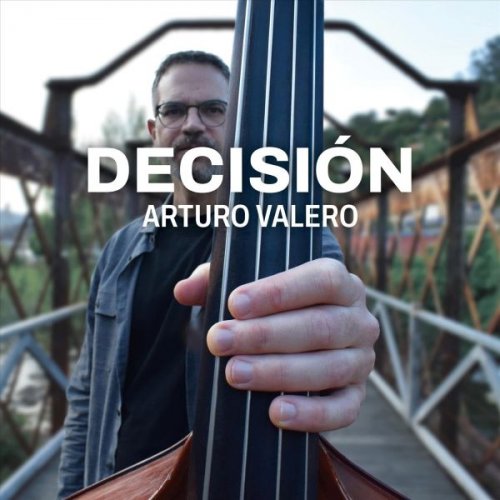Szilárd Mezei Vocal Ensemble - Hotel America (2018)
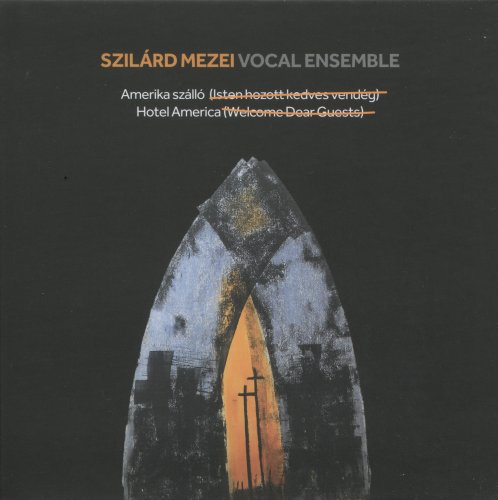
Artist: Szilárd Mezei Vocal Ensemble
Title: Hotel America
Year Of Release: 2018
Label: Not Two Records
Genre: Jazz
Quality: Mp3 320 kbps / FLAC (tracks+.cue)
Total Time: 01:15:45
Total Size: 173 / 393 MB
WebSite: Album Preview
Tracklist:Title: Hotel America
Year Of Release: 2018
Label: Not Two Records
Genre: Jazz
Quality: Mp3 320 kbps / FLAC (tracks+.cue)
Total Time: 01:15:45
Total Size: 173 / 393 MB
WebSite: Album Preview
01 Amerika Szálló (Hotel America) 1
02 Amerika Szálló (Hotel America) 2
03 Amerika Szálló (Hotel America) 3
04 Amerika Szálló (Hotel America) 4
05 Amerika Szálló (Hotel America) 5
In Zenta everyone knows Hotel America on the bank of the Tisza River. It is a building not smaller or larger than any other in the vicinity. The narrow, single doors in the basement are special peculiarities of that hotel. Namely, Tito’s communist Partisans occupied the region at the end of WW II, in the autumn of 1944. In Zenta, they had detained people in the basement of Hotel America, where they not only tortured the detainees but also beat many of them to death. In the Délvidék there were numerous places like Hotel America at that time: town or council hall cellars, mills, granaries, football pitches were used for such purpose. Most of the innocent victims of execution rest in unmarked or earlier designated mass graves. In the region along the Tisza, most frequently, the river happened to be their final resting place. Not a single word could have been uttered about these acts of the Partisans for almost half a century. The Hungarians in Yugoslavia lived together with their murderers; what’s more, the heroic Partisans were set up as role models.
Szilárd Mezei wanted to pay homage to these innocent victims of execution
György Szabados, the “father” of Hungarian free improvisation music, also composed a similar piece: Az események titkos története (Históriás ének /az emlékezet előtti időkből/) /The Secret History of the Events (Historic song/from times immemorial)/. In Hungary, talking about the Revolution of 1956 was also forbidden until the late 1980s. Why do I refer to Szabados’s work? Both authors belong to the same school, the same genre of music, and they are the Master and his student. Szabados pays tribute to the purity of the Revolution of 1956, the revolutionists, and those who were killed or executed during the aftermath of the Revolution, whereas Mezei honours the memory of the innocent Hungarian victims of the massacre perpetrated by the Partisans in 1944. Szabados and his co-musicians put to music his own twisted, “secret” lyrics (his “metalanguage”) in accordance with the rules of the genre, in an improvisational manner, whereas Mezei did the same, but used the poems of Hungarians poets from Vajdaság which allude to the events or only to the mood of that events. Hotel America became the common requiem of tens of thousands of innocent victims of execution, shot to death and buried in rivers and mass graves.
The music is eclectic - it is for those, who got used to classic, well-definable genres of music. The keynote of harmony is sometimes tonal sometimes atonal, fixed and improvised parts alternate, mingle, intertwine, and sometimes it is jazz, sometimes it is improvisation, sometimes it can even be called classic free jazz, and at times contemporary (classic) music. Since it has a narrative, a story it can also be called programme music. A uniform piece of music encompassing all the above mentioned features. Mezei defined it as follows: “I had a surreal vision that the persons waiting for their death down in the basement, recite a couple of poems to each other, which were written by authors from Vajdaság: most specifically, two poems by István Koncz, and a poem by János Sziveri, Endre B. Pap and István Domonkos each, and it all sounds like an oratorio in the production.
The beginning is serene, tranquil, but then comes the upheaval and the descending melody (F sharp- F-C sharp-B) of the first line of Koncz’s poem cuts through the air: There will be war. As to the river bank-romance - referred to in the first line of Koncz’s poem - well, it is not that idyllic at all, because between the lines the denied past is looming, - the last moans of innocent persons slain and buried in the uncovered trenches along the banks of Tisza in Kanizsa. The vision of “There will be war” reappears in the end, and its descending melody ends the poem, leaving just a silent tone of the flute, then a solo, which is exclusively in low registers. A version of the “There will be war”- rhythm introduces the poem by Endre B. Pap, at first, by the piano and the drum, while the orchestra gradually get involved into that pulsation with alternating instrumental solo improvisations. Interestingly, instrumental solos also suggest the descending melody and the rhythmical variation of the “There will be war”-theme. A tonal base repeatedly pops up in the atonality.
The central theme of the production is Koncz’s second poem, (a sort of a) prayer (so as not having to kill), which is, in fact, a prose written in verse and which includes a prosaic speech: (auto)biographical fragments about the father who fought in the great war, an elegy about the house with lowered blinds, where the poet hides. Decimated in number, Hungarians in Délvidék were living behind such lowered blinds for decades. At the end of the prayer, accompanied by the drum and the contrabass, the sweet-sour lyric solo of the bass clarinet comes on, and it is continued by the contrabass, then by the flute, while the orchestra plays tonal, lyric accords.
The overture for the poem by Sziveri starts in a limping, sluggish rhythm, while the poem is recited in fast, tense rhythm and ends with improvised instrumental solos in swing-feel pulse changing into soft and slow lament after the refrain: “Let’s leave Szabadka, Szabadka for good.” The poem by Domonkos is more like a play: first, there are two tones only, then more and more variations are added in a classic jazz framework with improvised instrumental solos in succession. And then, all of a sudden, the vibraphone can be heard; it has its solo piece and then disappears, as if it is waiting to hit the final tone at the very end, i.e. the one and only, slowly fading, disappearing C sharp, followed by silence, “not think of collective, not think of private”…
Besides their classic knowledge of the instruments, musicians performing the Hotel America should feel at home in the world of jazz, free jazz and free improvisation. Both tonal and atonal sounding should sound familiar for them. Interestingly, the singers are not professionals, but actors, who are good singers as well. Admittedly, their task is not easy, especially in parts with atonal melodic harmony.
First and last, Mezei’s work is a contribution to the redress of our common affairs at last, because it is our task, and there is a lot to do. Since remembrance melts the struggles and fights of our ancestors into peace.
Composed by and conductor Szilárd Mezei
Ágota Szilágyi - vocal
Kinga Mezei - vocal
Áron Balázs - vocal
Tijana Stanković - vocal, violin
Andrea Berendika - flute, alto flute
Bogdan Ranković - alto sax, bass clarinet
Péter Bede - tenor sax, alto sax, clarinet
Gergő Kováts - tenor sax, soprano sax
Béla Burány - baritone sax, soprano sax
Ádám Meggyes - trumpet
Árpád Kiss - trumpet
Branislav Aksin - trombone
Albert Márkos - violoncello
Máté Pozsár - piano
Ervin Malina - double bass
Ernő Hock - double bass
Oliver Mayne - vibraphone, glockenspiel
István Csík - drums
Recorded LIVE 14. December 2013, at CNESA, Magyarkanizsa, Serbia.
Szilárd Mezei wanted to pay homage to these innocent victims of execution
György Szabados, the “father” of Hungarian free improvisation music, also composed a similar piece: Az események titkos története (Históriás ének /az emlékezet előtti időkből/) /The Secret History of the Events (Historic song/from times immemorial)/. In Hungary, talking about the Revolution of 1956 was also forbidden until the late 1980s. Why do I refer to Szabados’s work? Both authors belong to the same school, the same genre of music, and they are the Master and his student. Szabados pays tribute to the purity of the Revolution of 1956, the revolutionists, and those who were killed or executed during the aftermath of the Revolution, whereas Mezei honours the memory of the innocent Hungarian victims of the massacre perpetrated by the Partisans in 1944. Szabados and his co-musicians put to music his own twisted, “secret” lyrics (his “metalanguage”) in accordance with the rules of the genre, in an improvisational manner, whereas Mezei did the same, but used the poems of Hungarians poets from Vajdaság which allude to the events or only to the mood of that events. Hotel America became the common requiem of tens of thousands of innocent victims of execution, shot to death and buried in rivers and mass graves.
The music is eclectic - it is for those, who got used to classic, well-definable genres of music. The keynote of harmony is sometimes tonal sometimes atonal, fixed and improvised parts alternate, mingle, intertwine, and sometimes it is jazz, sometimes it is improvisation, sometimes it can even be called classic free jazz, and at times contemporary (classic) music. Since it has a narrative, a story it can also be called programme music. A uniform piece of music encompassing all the above mentioned features. Mezei defined it as follows: “I had a surreal vision that the persons waiting for their death down in the basement, recite a couple of poems to each other, which were written by authors from Vajdaság: most specifically, two poems by István Koncz, and a poem by János Sziveri, Endre B. Pap and István Domonkos each, and it all sounds like an oratorio in the production.
The beginning is serene, tranquil, but then comes the upheaval and the descending melody (F sharp- F-C sharp-B) of the first line of Koncz’s poem cuts through the air: There will be war. As to the river bank-romance - referred to in the first line of Koncz’s poem - well, it is not that idyllic at all, because between the lines the denied past is looming, - the last moans of innocent persons slain and buried in the uncovered trenches along the banks of Tisza in Kanizsa. The vision of “There will be war” reappears in the end, and its descending melody ends the poem, leaving just a silent tone of the flute, then a solo, which is exclusively in low registers. A version of the “There will be war”- rhythm introduces the poem by Endre B. Pap, at first, by the piano and the drum, while the orchestra gradually get involved into that pulsation with alternating instrumental solo improvisations. Interestingly, instrumental solos also suggest the descending melody and the rhythmical variation of the “There will be war”-theme. A tonal base repeatedly pops up in the atonality.
The central theme of the production is Koncz’s second poem, (a sort of a) prayer (so as not having to kill), which is, in fact, a prose written in verse and which includes a prosaic speech: (auto)biographical fragments about the father who fought in the great war, an elegy about the house with lowered blinds, where the poet hides. Decimated in number, Hungarians in Délvidék were living behind such lowered blinds for decades. At the end of the prayer, accompanied by the drum and the contrabass, the sweet-sour lyric solo of the bass clarinet comes on, and it is continued by the contrabass, then by the flute, while the orchestra plays tonal, lyric accords.
The overture for the poem by Sziveri starts in a limping, sluggish rhythm, while the poem is recited in fast, tense rhythm and ends with improvised instrumental solos in swing-feel pulse changing into soft and slow lament after the refrain: “Let’s leave Szabadka, Szabadka for good.” The poem by Domonkos is more like a play: first, there are two tones only, then more and more variations are added in a classic jazz framework with improvised instrumental solos in succession. And then, all of a sudden, the vibraphone can be heard; it has its solo piece and then disappears, as if it is waiting to hit the final tone at the very end, i.e. the one and only, slowly fading, disappearing C sharp, followed by silence, “not think of collective, not think of private”…
Besides their classic knowledge of the instruments, musicians performing the Hotel America should feel at home in the world of jazz, free jazz and free improvisation. Both tonal and atonal sounding should sound familiar for them. Interestingly, the singers are not professionals, but actors, who are good singers as well. Admittedly, their task is not easy, especially in parts with atonal melodic harmony.
First and last, Mezei’s work is a contribution to the redress of our common affairs at last, because it is our task, and there is a lot to do. Since remembrance melts the struggles and fights of our ancestors into peace.
Composed by and conductor Szilárd Mezei
Ágota Szilágyi - vocal
Kinga Mezei - vocal
Áron Balázs - vocal
Tijana Stanković - vocal, violin
Andrea Berendika - flute, alto flute
Bogdan Ranković - alto sax, bass clarinet
Péter Bede - tenor sax, alto sax, clarinet
Gergő Kováts - tenor sax, soprano sax
Béla Burány - baritone sax, soprano sax
Ádám Meggyes - trumpet
Árpád Kiss - trumpet
Branislav Aksin - trombone
Albert Márkos - violoncello
Máté Pozsár - piano
Ervin Malina - double bass
Ernő Hock - double bass
Oliver Mayne - vibraphone, glockenspiel
István Csík - drums
Recorded LIVE 14. December 2013, at CNESA, Magyarkanizsa, Serbia.
Download Link Isra.Cloud>>>
Amerika_Szallo_FLAC.rar - 393.2 MB
Amerika_Szallo_MP3.rar - 173.9 MB
Amerika_Szallo_FLAC.rar - 393.2 MB
Amerika_Szallo_MP3.rar - 173.9 MB
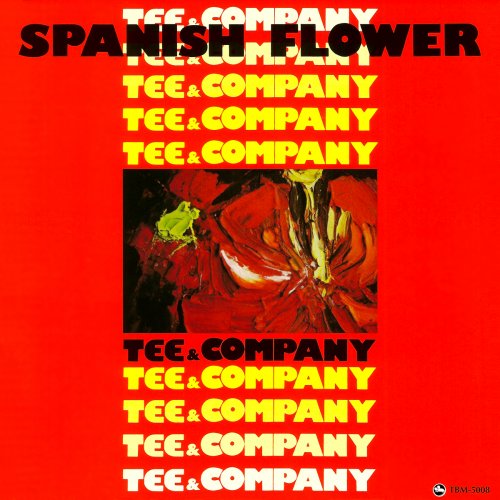
![Magda Mayas' Filamental - Murmur (2026) [Hi-Res] Magda Mayas' Filamental - Murmur (2026) [Hi-Res]](https://www.dibpic.com/uploads/posts/2026-02/1771663724_i3cjtptz4ae2l_600.jpg)
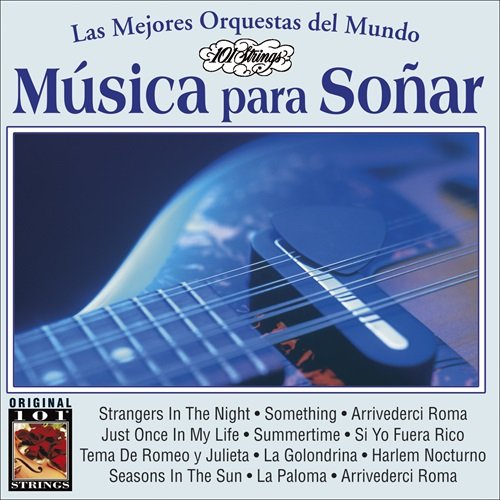
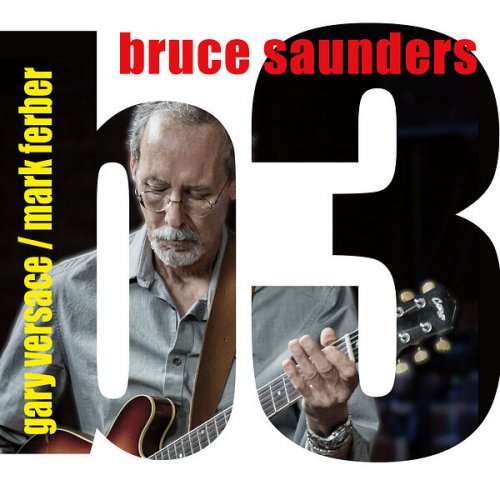
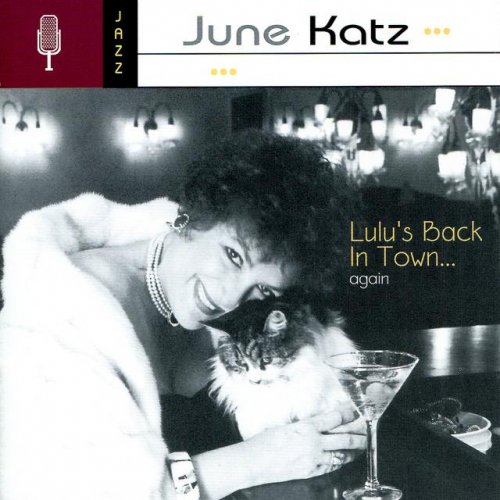
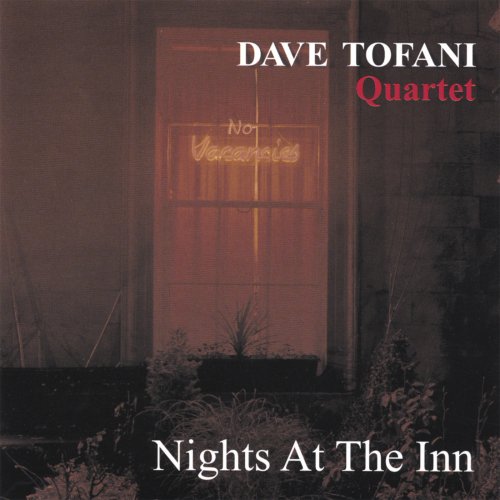
![Susie Philipsen - Sunday Kissing Club (2026) [Hi-Res] Susie Philipsen - Sunday Kissing Club (2026) [Hi-Res]](https://www.dibpic.com/uploads/posts/2026-02/1771738386_500x500.jpg)
![Various Artists - Music For A Revolution Vol 2 : Guinea's Syliphone Recording Label (1968-1980) (2026) [Hi-Res] Various Artists - Music For A Revolution Vol 2 : Guinea's Syliphone Recording Label (1968-1980) (2026) [Hi-Res]](https://img.israbox.com/img/2026-02/21/jfwfvpseyfdkg8oktjmsf4l3o.jpg)
